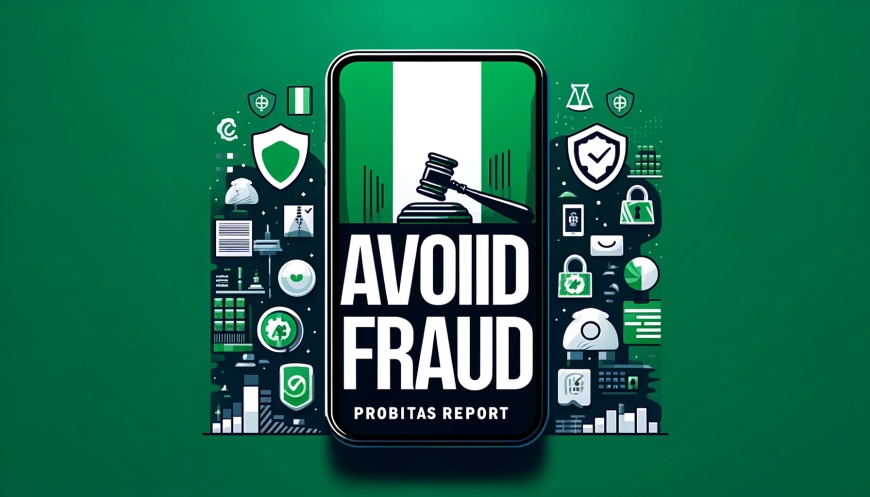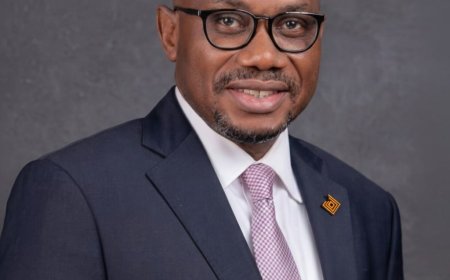Key Lessons for Nigerian Private Investigators and Fraud Investigators in Combating Financial Crimes
Discover essential lessons for Nigerian private investigators and fraud investigators in tackling financial crimes. Learn how leveraging technology, collaboration, and forensic evidence can enhance fraud detection and resolution.

Lessons That Nigeria Private Investigators And Fraud Investigators Can Learn
Based on the content from Anatomy of a Fraud Investigation by Stephen Pedneault, there are several key lessons that Nigerian fraud investigators can learn to improve their investigative abilities and address the challenges posed by financial fraud in the . These lessons focus on improving technical skills, adopting best practices, and fostering a structured approach to investigations. Below is a detailed breakdown of these lessons as elucidated by Dr Kreeno:
1. Importance of Anonymous Tips and Complaints
-
Lesson: Anonymous tips and complaints are the leading method of detecting fraud, accounting for nearly half of all fraud cases detected globally.
Application in Nigeria:
-
Encourage organizations to implement robust whistleblower programs and anonymous reporting mechanisms to enable employees, customers, and vendors to report suspicious activities without fear of retaliation.
-
Educate stakeholders about their fiduciary duty to report fraud, emphasizing the role of collective vigilance in combating financial crimes.
2. Preserving Evidence and Maintaining Chain of Custody
-
Lesson: Controlling the scene and preserving evidence are critical to maintaining the integrity of an investigation. Investigators must meticulously document the chain of custody to ensure evidence remains admissible in court.
Application in Nigeria:
-
Train investigators to secure physical, documentary, and electronic evidence immediately upon discovery.
-
Implement strict protocols for handling evidence, including labeling, cataloging, and storing items to prevent tampering or loss.
-
Use forensic tools to create exact copies of digital evidence (e.g., hard drives, emails) and analyze metadata without altering the original data.
3. Leveraging Technology and Forensic Expertise
-
Lesson: Technically competent resources, such as computer forensic specialists, are invaluable during investigations. Electronically maintained information must be handled properly to ensure accuracy and completeness.
Application in Nigeria:
-
Build capacity within investigative teams by training fraud investigators in digital forensics and data analysis.
-
Partner with IT specialists or third-party forensic firms to recover deleted files, trace electronic transactions, and analyze metadata.
-
Utilize tools like QuickBooks reconciliation and other software to corroborate financial records with external sources like bank statements.
- The Need For Private Investigators To Review AMCON'S Operations Over The Last Decade
- How Non Payment Of Your Debt Affect Your Integrity
- Strengthening Fight Against Financial Fraud in Nigeria
- Understanding The Dangers of Financial Fraud And How To Stay Clean
- The Need For Private Investigators To Review AMCON'S Operations Over The Last Decade

4. Conducting Thorough Interviews and Interrogations
-
Lesson: Interviews are a cornerstone of fraud investigations. Success depends on planning, asking open-ended questions, documenting responses, and creating a comfortable environment for witnesses and suspects.
Application in Nigeria:
-
Train investigators in advanced interviewing techniques, including how to read body language, identify inconsistencies, and handle emotional reactions.
-
Ensure interviews are conducted in private spaces and documented meticulously to support future legal proceedings.
-
Prepare for unexpected outcomes, such as counterclaims from suspects, and remain objective throughout the process.
5. Collaboration with Legal Counsel
-
Lesson: Legal counsel plays a vital role in protecting investigative findings and ensuring compliance with legal standards. Engaging counsel early helps safeguard communications and work products from discovery.
Application in Nigeria:
-
Establish clear lines of communication between fraud investigators and legal counsel to ensure investigations align with applicable laws and regulations.
-
Mark all communications and procedures as confidential and attorney-client privileged to minimize exposure during litigation.
-
Plan for potential legal challenges, such as claims of harassment or wrongful termination, and prepare strategies to mitigate risks.
6. Understanding the Complexity of Fraud Schemes
-
Lesson: Fraud schemes often involve sophisticated methods, concealment tactics, and accomplices. Investigators must piece together minor details to uncover major information.
Application in Nigeria:
-
Develop expertise in identifying red flags specific to local contexts, such as corruption, embezzlement, and asset misappropriation.
-
Analyze patterns of behavior, transaction anomalies, and discrepancies in financial records to detect hidden schemes.
-
Investigate whether suspects acted alone or collaborated with others, and determine the extent of their network.
7. Planning and Execution of Investigations
-
Lesson: Successful investigations require careful planning, clear objectives, and adaptability to changing circumstances.
Application in Nigeria:
-
Begin investigations with foundational questions to clarify objectives, assess risks, and allocate resources effectively.
-
Create detailed plans for executing raids, seizing evidence, and managing unexpected challenges.
-
Maintain flexibility to adjust strategies based on new findings or stakeholder priorities.
8. Managing Client Expectations
-
Lesson: Fraud investigations take time, and clients must understand that resolving such matters can take months or even years.
Application in Nigeria:
-
Educate stakeholders about the complexity and duration of fraud investigations to manage expectations.
-
Communicate regularly with clients to update them on progress and address concerns promptly.
-
Emphasize the importance of patience and thoroughness in achieving accurate and just outcomes.
MORE NEWS: How Nonpayment of Debts Undermines Your Integrity And Cripples Economies

9. Preventing Future Incidents
-
Lesson: Lessons learned from investigations should inform preventive measures, such as strengthening internal controls, enhancing employee training, and fostering a culture of integrity.
Application in Nigeria:
-
Conduct post-investigation reviews to identify systemic weaknesses and recommend improvements.
-
Strengthen internal audit procedures and segregation of duties to reduce opportunities for fraud.
-
Promote ethical behavior through leadership examples, recognition programs, and anti-fraud education initiatives.
10. Documenting Every Step of the Process
-
Lesson: Detailed documentation is essential for supporting findings, addressing legal challenges, and learning from past cases.
Application in Nigeria:
-
Train investigators to maintain comprehensive notes, organize files systematically, and memorialize key decisions which is where CAFFIA and Kreeno Holdings come in.
-
Ensure documentation includes dates, times, locations, participants, and outcomes to establish a clear narrative.
-
Use documentation to justify actions taken during the investigation and defend against allegations of misconduct.
11. Addressing Challenges Posed by Targets
-
Lesson: Fraud perpetrators may retaliate by filing counterclaims, destroying evidence, or attempting to derail investigations.
Application in Nigeria:
-
Anticipate resistance from targets and develop contingency plans to address hostile behaviors.
-
Secure evidence quickly and discreetly to prevent destruction or removal.
-
Document attempts to contact targets for their side of the story, demonstrating due diligence and fairness.

12. Sharing Knowledge and Building Capacity
-
Lesson: There is a significant gap in available resources that provide detailed insights into real-world fraud investigations.
Application in Nigeria:
-
Encourage experienced fraud investigators to share their knowledge through publications, workshops, and mentorship programs.
-
Collaborate with international organizations like the Association of Certified Fraud Examiners (ACFE) and Coalition Against Financial Fraud Initiative In Africa (CAFFIA) to access cutting-edge educational materials and training opportunities.
-
Foster partnerships between academia, law enforcement, and private investigators like Kreeno Debt Recovery And Private Investigation Agency sectors to develop innovative courses and certifications in forensic accounting and fraud prevention.
Conclusion: Strengthening Nigeria’s Fight Against Financial Fraud
Nigeria’s ability to combat financial fraud depends on a proactive, technology-driven, and collaborative approach to investigations. By integrating cutting-edge forensic tools, strengthening partnerships with private investigators and legal experts, and reinforcing regulatory frameworks, fraud investigators can effectively detect, analyze, and dismantle complex financial crime networks.
Furthermore, fostering a culture of integrity and accountability within both public and private institutions is essential for long-term success. Training, knowledge sharing, and capacity-building initiatives will ensure that Nigerian fraud investigators remain ahead of evolving fraud tactics and aligned with global best practices in financial crime enforcement.
As financial crimes grow in sophistication, Nigeria must remain steadfast in adopting innovative solutions, leveraging intelligence networks, and upholding the rule of law. With these concerted efforts, we can fortify the nation's financial system, restore investors confidence, and enhance economic stability.
Dr. Ohio O. Ojeagbase, FICA, FIDR (a.k.a Dr Kreeno)
Chief Private Investigator / CEO
Kreeno Debt Recovery & Private Investigation Agency (KREENO) & CAFFIA
USA Office: 5800 3rd Street, #1118, San Francisco, CA 94124, USA
Kindly share this story:
Contact: report@probitasreport.com
Stay informed and ahead of the curve! Follow The ProbitasReport Online News Report on WhatsApp for real-time updates, breaking news, and exclusive content especially when it comes to integrity in business and financial fraud reporting. Don't miss any headline – and follow ProbitasReport on social media platforms @probitasreport
[©2025 ProbitasReport - All Rights Reserved. Reproduction or redistribution requires explicit permission.]
What's Your Reaction?


































































































